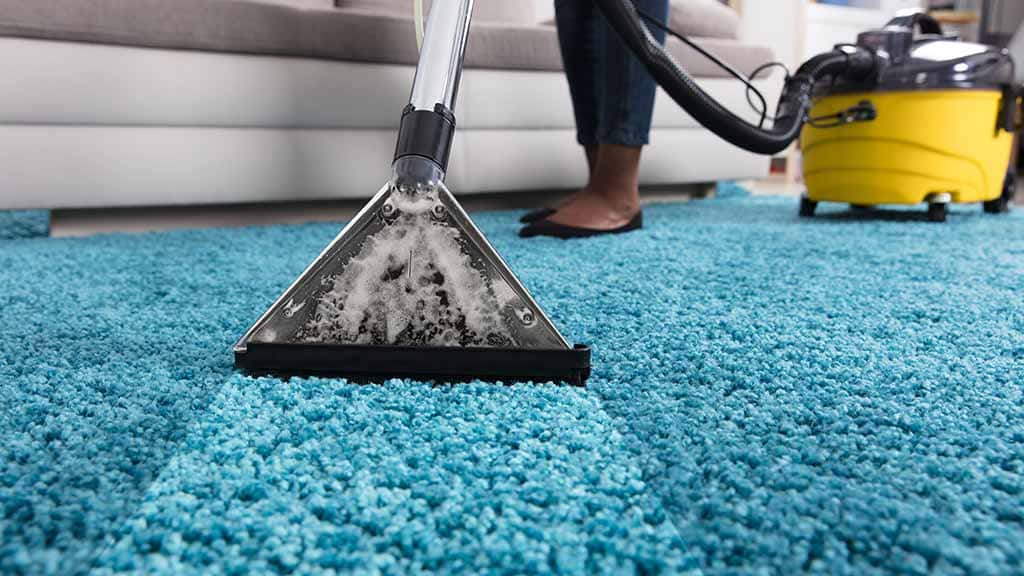“Unlock the secrets of gardening with the ultimate guide to essential tools and techniques for beginners.”
Introduction:
Gardening is a rewarding and fulfilling hobby that allows individuals to connect with nature and create beautiful outdoor spaces. For beginners, understanding the essential tools and techniques is crucial to ensure a successful and enjoyable gardening experience. This guide aims to provide an introduction to gardening for beginners, highlighting the necessary tools and techniques that will help lay a solid foundation for a thriving garden. By familiarizing oneself with these basics, beginners can confidently embark on their gardening journey and cultivate a green thumb.
Basic Gardening Tools Every Beginner Should Have
Gardening is a rewarding and fulfilling hobby that allows individuals to connect with nature and create beautiful outdoor spaces. Whether you have a small balcony or a spacious backyard, starting a garden can be a great way to relax and enjoy the beauty of nature. However, for beginners, getting started can be overwhelming. With so many tools and techniques to choose from, it’s important to have a basic understanding of the essential tools needed to begin your gardening journey.
One of the most important tools every beginner gardener should have is a good pair of gloves. Gardening gloves protect your hands from thorns, sharp edges, and potential irritants in the soil. They also provide a better grip when handling tools and prevent blisters. Look for gloves that are durable, comfortable, and made from breathable materials.
Another essential tool is a hand trowel. This small, handheld tool is perfect for digging small holes, transplanting seedlings, and removing weeds. Look for a trowel with a sturdy handle and a sharp, pointed blade. A hand trowel is versatile and can be used for various gardening tasks, making it a must-have for beginners.
A garden fork is another tool that should be in every beginner gardener’s arsenal. This tool is used for loosening and aerating the soil, making it easier for plants to grow and thrive. A garden fork is also useful for turning compost and breaking up clumps of soil. Look for a fork with sturdy tines and a comfortable handle for easy use.
A watering can or hose is essential for keeping your plants hydrated. Watering cans are great for small gardens or indoor plants, while hoses are more suitable for larger outdoor spaces. Look for a watering can or hose with an adjustable nozzle to control the water flow. It’s important to water your plants regularly, especially during hot summer months, to ensure their health and growth.
A garden rake is another tool that every beginner gardener should have. This tool is used for leveling the soil, removing debris, and breaking up clumps. A garden rake is also useful for spreading mulch and creating a smooth surface for planting. Look for a rake with sturdy tines and a comfortable handle for easy use.
Lastly, a pair of pruning shears is essential for maintaining the health and shape of your plants. Pruning shears are used for trimming branches, deadheading flowers, and shaping shrubs. Look for shears with sharp blades and a comfortable grip. Regular pruning helps promote healthy growth and prevents plants from becoming overgrown.
In conclusion, starting a garden can be an exciting and fulfilling experience. However, it’s important to have the right tools to ensure success. A good pair of gloves, a hand trowel, a garden fork, a watering can or hose, a garden rake, and pruning shears are essential tools that every beginner gardener should have. These tools will help you dig, plant, water, and maintain your garden, allowing you to enjoy the beauty of nature right in your own backyard. So, grab your tools and get ready to embark on your gardening journey!
Essential Techniques for Successful Gardening
Gardening is a rewarding and fulfilling hobby that allows individuals to connect with nature and create beautiful outdoor spaces. However, for beginners, it can be overwhelming to know where to start. In this section, we will discuss some essential techniques for successful gardening that will help beginners get started on the right foot.
One of the most important techniques for successful gardening is proper soil preparation. Before planting anything, it is crucial to ensure that the soil is healthy and fertile. This can be achieved by adding organic matter, such as compost or well-rotted manure, to improve the soil’s structure and nutrient content. Additionally, testing the soil’s pH level can help determine if any amendments are needed to create the ideal growing conditions for plants.
Another essential technique for successful gardening is proper watering. Different plants have different water requirements, so it is important to understand the needs of the plants in your garden. Generally, it is best to water deeply and infrequently, allowing the soil to dry out slightly between waterings. This encourages plants to develop deep root systems and become more resilient to drought conditions. Additionally, watering in the early morning or late afternoon helps minimize water loss due to evaporation.
Proper pruning is another technique that is essential for successful gardening. Pruning involves removing dead or diseased branches, shaping plants for aesthetic purposes, and promoting healthy growth. Regular pruning helps improve air circulation and sunlight penetration, reducing the risk of fungal diseases. It is important to use clean and sharp pruning tools to prevent the spread of diseases between plants.
Weeding is a technique that cannot be overlooked in successful gardening. Weeds compete with plants for nutrients, water, and sunlight, and can quickly take over a garden if left unchecked. Regularly removing weeds by hand or using a hoe helps maintain the health and appearance of the garden. Applying mulch around plants can also help suppress weed growth by blocking sunlight and preventing weed seeds from germinating.
Another important technique for successful gardening is proper fertilization. Plants require essential nutrients to grow and thrive, and sometimes the soil alone may not provide an adequate supply. Fertilizers can be used to supplement the soil’s nutrient content and promote healthy plant growth. It is important to choose the right type of fertilizer for the specific needs of your plants and follow the recommended application rates.
Lastly, pest and disease management is a crucial technique for successful gardening. Insects, diseases, and other pests can wreak havoc on plants if not properly controlled. Integrated pest management (IPM) techniques, such as using beneficial insects, practicing crop rotation, and regularly inspecting plants for signs of pests or diseases, can help minimize the use of chemical pesticides and maintain a healthy garden ecosystem.
In conclusion, successful gardening requires a combination of essential techniques that beginners should familiarize themselves with. Proper soil preparation, watering, pruning, weeding, fertilization, and pest and disease management are all important aspects of maintaining a healthy and thriving garden. By implementing these techniques, beginners can set themselves up for gardening success and enjoy the beauty and satisfaction that comes with nurturing plants and watching them flourish.
Must-Know Tips for Beginner Gardeners
Gardening is a rewarding and fulfilling hobby that allows you to connect with nature and create a beautiful outdoor space. If you’re new to gardening, it can feel overwhelming to know where to start. However, with the right tools and techniques, you can set yourself up for success and enjoy the process of growing your own plants and flowers.
One of the first things you’ll need as a beginner gardener is a set of essential tools. These tools will help you with various tasks, from preparing the soil to planting and maintaining your garden. A good set of tools includes a trowel, a hand fork, a garden rake, and a pair of pruning shears. These tools will cover most of your basic gardening needs and make your gardening experience much easier.
Once you have your tools, it’s important to learn some essential gardening techniques. One of the most important techniques is proper soil preparation. Before planting anything, you need to ensure that your soil is healthy and fertile. This can be done by adding organic matter, such as compost or well-rotted manure, to improve the soil’s structure and nutrient content. Additionally, you should test your soil’s pH level to determine if any amendments are needed to create the ideal growing conditions for your plants.
Another important technique for beginner gardeners is proper watering. It’s crucial to water your plants regularly, especially during dry periods. However, overwatering can be just as harmful as underwatering. To determine when to water, check the moisture level of the soil by sticking your finger about an inch deep into the soil. If it feels dry, it’s time to water. Additionally, it’s best to water your plants in the morning or evening when the temperatures are cooler, as this allows the water to penetrate the soil more effectively.
In addition to soil preparation and watering, proper plant placement is key to a successful garden. Different plants have different light and temperature requirements, so it’s important to choose the right location for each plant. Some plants thrive in full sun, while others prefer partial shade. Take note of the amount of sunlight your garden receives throughout the day and choose plants accordingly. Additionally, consider the spacing requirements of each plant to ensure they have enough room to grow and thrive.
As a beginner gardener, it’s also important to be patient and observant. Gardening is a process that takes time, and not every plant will thrive right away. Take the time to observe your plants and make adjustments as needed. If a plant isn’t doing well in its current location, try moving it to a different spot. If you notice pests or diseases, take action to prevent further damage. By being attentive and proactive, you can ensure the health and success of your garden.
In conclusion, gardening can be a rewarding and enjoyable hobby for beginners. By equipping yourself with the essential tools and learning some basic techniques, you can set yourself up for success. Remember to prepare your soil, water your plants properly, and choose the right location for each plant. Be patient and observant, and don’t be afraid to make adjustments as needed. With time and practice, you’ll become a confident and skilled gardener.In conclusion, gardening for beginners requires the use of essential tools and techniques. These tools include a trowel, pruners, gloves, and a watering can. Techniques such as proper soil preparation, watering, and pruning are crucial for successful gardening. By equipping oneself with the necessary tools and knowledge of basic techniques, beginners can embark on a rewarding gardening journey.



